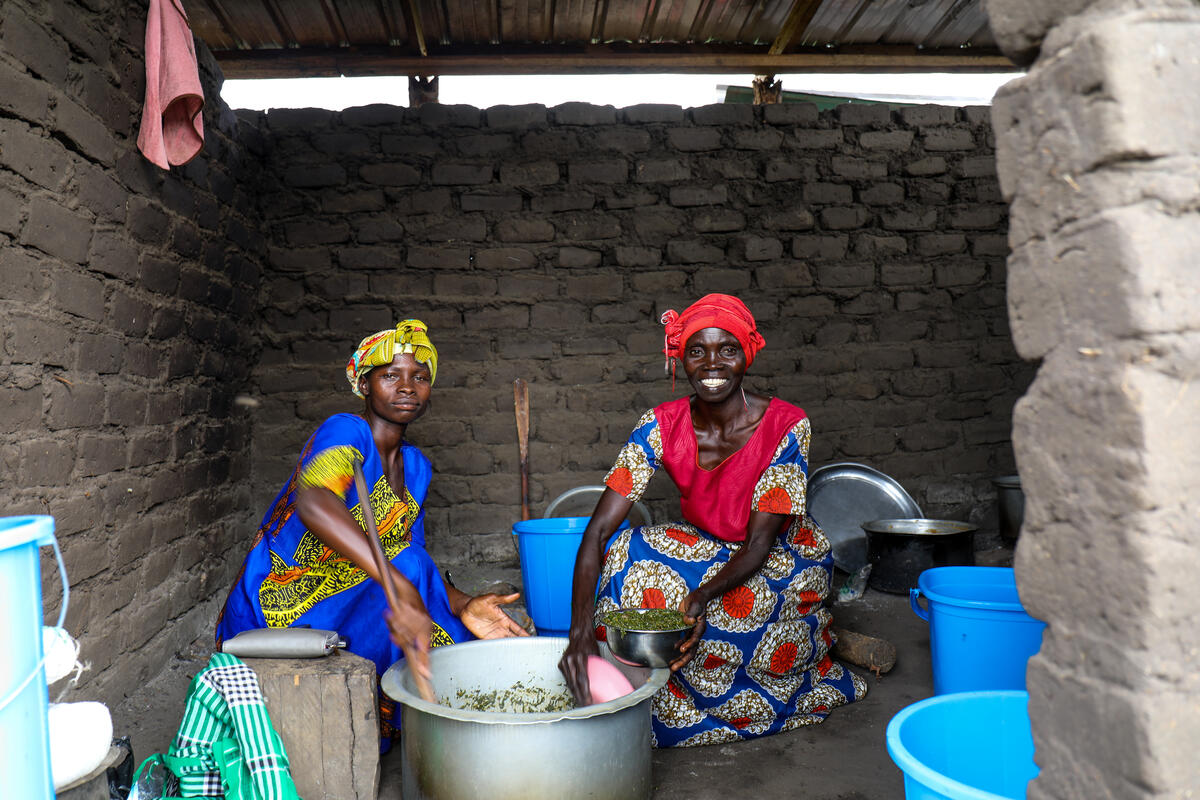Sudanese teen takes mother's advice to embrace education rather than fear it
Sudanese teen takes mother's advice to embrace education rather than fear it

GENDRASSA, South Sudan, May 13 (UNHCR) - Takwa Baderdin is a shy 16-year-old girl who avoids making eye contact with people she does not know, but at the mention of her recent academic success her downcast eyes light up with pride.
Like other children in South Sudan, Takwa was required to sit exams to complete her primary education. But unlike the majority of those children, Takwa and her family have faced life-changing challenges, fleeing their home in Sudan and restarting their lives in a refugee camp.
Undaunted, Takwa went on to achieve the fourth highest exam results in South Sudan's Upper Nile state. And she was not the only refugee to do well. Twenty-seven other children in the Gendrassa camp also passed the exam.
"I still cannot believe it," Takwa says as she works at her domestic chores in the refugee camp that has been her family's home since July 2012.
Her mother also cannot conceal her delight at her daughter's achievement. "I have always taught my children, especially my daughters, never to fear education but to embrace it," says Nawal Umer, a kindergarten teacher. The value the family places on learning has allowed Takwa and her sisters to attend classes at an age when most of their peers have married and become mothers.
"I will support and defend my children's right to education with every fibre of my being, especially that of my daughters," says Umer. "Now we need to ensure that Takwa can attend secondary school."
Umer and her children were forced to flee their home in Sudan's Blue Nile state in March 2011 when they became trapped in a conflict between the Sudanese armed forces and the Sudanese People's Liberation Army-North. The family first made their way to Ethiopia and then walked to South Sudan, where they were reunited with Takwa's father. He had become separated from his family in the fighting and was living in another refugee camp.
After enrolling in one of the camp's schools, Takwa confronted a significant challenge. Classes in South Sudan are taught in English, a language then unfamiliar to the Arabic-speaking teen. It will be an opportunity to learn a new language, she told herself.
With dreams of becoming a broadcast journalist - a career choice reluctantly supported by her mother - Takwa must now find a means of continuing her education. Resources limit the education available in refugee camps to primary school. Secondary school places are available in the local community, but many classes are filled to capacity.
As an interim measure, UNHCR is implementing community-based informal classes for those refugee children who have passed their primary school exams.
"We want to ensure that students with such potential do not get sidetracked by issues they should not be focusing on, such as early marriage," says Jockshan Foryoh, an education officer with the refugee agency. "We are encouraging primary school leavers to enrol and participate in informal education classes where they are productively engaged in ongoing learning."
UNHCR and partner agencies have also begun addressing the gaps that need to be resolved before secondary education can begin in Upper Nile's refugee camps. These include a lack of qualified teachers as well as shortages of text and exercise books and structures in which to locate the schools.
By Pumla Rulashe in Gendrassa, South Sudan









